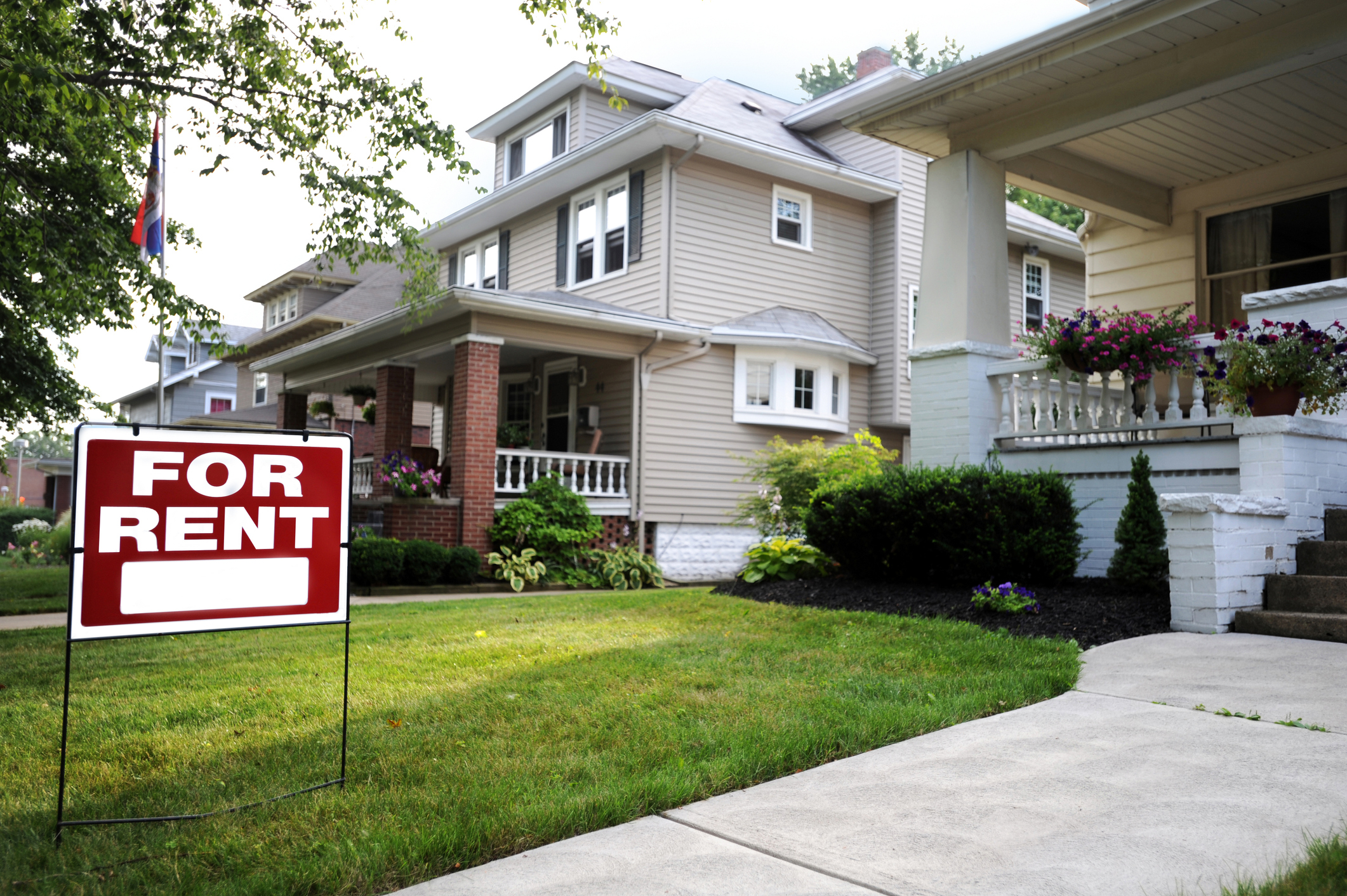You can get a home equity loan on investment property. However, the process is more involved than it is a primary residence. Lenders are more demanding in this scenario, requiring higher credit scores and lower LTV ceiling limits. Higher interest rates and higher closing fees also make the loans more costly.
A home equity loan allows you to borrow against the value of your investment property, usually with a fixed interest rate and set payment terms. However, qualification depends on variables such as credit score, debt-to-income, and property type.
What Is an Investment Property?
An investment property is a single-family or multi-family home purchased primarily to generate rental income or appreciation. Unlike your primary residence, which is occupied by you, the owner, investment properties are often rented out, flipped, or held for resale.
Key Differences Between Primary Residences and Investment Properties
- Occupancy: You, as the owner, live in your primary residence, while investment properties are typically rented out or held for financial gain.
- Loan Terms: Lenders consider investment properties riskier, leading to stricter loan-to-value (LTV) ratios and higher interest rates.
- Tax Differences: Mortgage interest on investment properties can be tax-deductible. However, the regulations are different from those for primary residences.
Requirements for Getting a Home Equity Loan on Investment Property
Lenders are pretty strict about borrowing requirements for investment properties, and they can be challenging to meet, especially if you own multiple investment properties with outstanding mortgages.
Using an investment property as collateral, you’ll need to demonstrate strong financial health, stable income, and a solid credit score to qualify. Additionally, lenders usually have more stringent LTV ratio and debt-to-income (DTI) ratio requirements than home equity loans for primary residences.
Property Requirements
- LTV Ratio: Investment properties often require an LTV ratio of 70% to 80%, meaning you must retain at least 20% to 30% equity after borrowing.
- Property Type and Occupancy: Lenders typically have different requirements for single-family, multi-unit, or commercial properties.
Borrower Requirements
- Credit Score: A minimum credit score of 700 is usually required, with better terms and rates for those with scores above 740.
- DTI: Most lenders require a DTI ratio of 43% or lower.
- Closing Costs: Expect to pay for an appraisal, origination fees, and other closing costs, totaling 2% to 5% of the loan amount.
How to Get a Home Equity Loan on Investment Property
Getting a home equity loan on an investment property requires careful financial planning and preparation. Lenders have more stringent requirements for investment properties than for primary residences, so it’s crucial to understand the necessary qualifications and the steps involved.
Assess Home Equity and Financial Qualifications
Before applying for a home equity loan on an investment property, determine how much equity you have in the property. Lenders typically require you to retain at least 20% to 30% equity in the property after taking out your loan.
Meet Credit Score and DTI Ratio Requirements
A minimum credit score of 700 is typically required, with better loan terms available to borrowers with scores of 740 and up. Maintaining a DTI ratio below 43% can improve your approval chances.
Research Lenders
Not all lenders offer home equity products for investment properties, so seeking out and comparing your options is essential. Large banks, credit unions, and online lenders have varying eligibility requirements, interest rates, and LTV ratio limits. Some of the best home equity loan providers offer multiple solutions on a single platform.
Some lenders might specialize in home equity lines of credit (HELOCs) on investment properties, while others focus on traditional home equity loans for the purpose. Regardless of which you choose, read and understand the loan terms carefully, as investment property loans often come with higher interest rates than those for primary residences.
Related Article: Can You Take Equity Out of Your Home Without Refinancing?
Choose Between a Home Equity Loan and a HELOC
Deciding between a home equity loan and a HELOC depends on your needs and how you plan to spend and repay the funds. A home equity loan provides a one-time lump sum payment attached to a fixed interest rate, making it ideal for significant expenses like remodeling and renovating.
On the other hand, a HELOC operates as a revolving line of credit, often with variable interest rates. HELOCs allow flexible withdrawals over a draw period of between five and 10 years. If you need ongoing access to funding, you may benefit from a HELOC. While borrowers looking for long-term payment stability may prefer a fixed-rate traditional home equity loan, some lenders now offer fixed-rate HELOCs.
Prepare Documents
Lenders require detailed financial documentation to process a home equity loan on an investment property. Be prepared to provide tax returns, rental income statements, mortgage records, and proof of property ownership.
Additionally, because it’s more of a business transaction than a personal one, lenders may request bank statements, profit-and-loss statements for rental properties, and credit reports.
Home Equity Loan vs. HELOC: Which Is Better for Investment Property?
When deciding between a home equity loan and a HELOC for an investment property, it’s essential to consider your needs, goals, and risk tolerance regarding interest rates.
While both options allow you to access equity, they differ in structure, repayment terms, interest rates, and other specifics. A home equity loan provides stability with a fixed repayment schedule, while a HELOC offers flexibility for ongoing or future expenses, at least for a specified time. Understanding these differences will help you choose the best option.
Home Equity Loan
- Provides a lump sum with fixed repayment terms.
- Ideal for one-time expenses, such as major property improvements.
- Typically has a fixed rate and predictable monthly payments.
HELOC
- Functions as a revolving line of credit, allowing flexible funding.
- Often has variable interest rates, meaning payments can fluctuate.
- Better suited for ongoing expenses.
Which Is Best?
- A home equity loan is better for fixed expenses and those who prefer stability.
- A HELOC is ideal for investors needing access to funds over time.
Related Article: HELOC Vs Home Equity Loan: What You Need to Know
What Can I Use the Funding For?
Using a home equity loan or HELOC on an investment property provides you with a versatile funding source. Whether you’re looking to improve your rental property, consolidate debt, or expand your real estate portfolio, leveraging your home’s equity can open financial doors and allow you to remain financially flexible. However, it’s essential to use the funds strategically to maximize returns and minimize your risk.
- Property Improvements and Renovations: Increase rental income and property value.
- Debt Consolidation and Financial Restructuring: Use the lower interest rates to pay off higher-cost debts.
- Down Payments on Additional Investment Properties: Expand your portfolio by leveraging your home’s equity.
Restrictions and Considerations
When taking out a home equity loan on an investment property, being aware of several key restrictions and potential drawbacks is essential because lenders have stricter requirements, and borrowing costs can be significantly higher than those for primary residences.
- Higher Interest Rates: Investment properties typically have higher interest rates than primary residences.
- Repayment Terms and Periods: Understand the draw period for HELOCs and the repayment period for both loans and HELOCs.
- Closing Costs and Fees: Be aware of all associated fees before taking out the loan.
Comparing the Best Home Equity Loan Options for Investment Properties
Finding the right home equity loan for an investment property requires carefully comparing lenders, interest rates, loan terms, and other variables. Different lenders offer varying LTV ratios, closing costs, and repayment structures. Below are some of the top home equity loan providers offering financial products and home equity loans on investment properties.
Better.com Home Equity Loans
- No origination fees and a seamless online application.
- Competitive rates for borrowers with high credit scores.
- No origination fees or prepayment penalties
- Vacation homes and investment properties can qualify
- Payments are available quickly after approval
Read our Better Home Equity Loans Review
LendingTree
- Allows borrowers to compare multiple lenders to find the best solution.
- Works with banks and credit union home equity products.
- Personal loans, debt consolidation, and other financial tools available
- Lending marketplace
- Qualifying won’t affect credit score
Is It Harder to Get a Home Equity Loan on Investment Property?
Getting a home equity loan on an investment property is generally more difficult than getting one for a primary residence due to the increased risk for lenders. Investment properties are viewed as less stable assets than primary residences, as rental income can fluctuate, and borrowers are more likely to default on investment property loans during financial hardship.
As a result, lenders enforce stricter approval criteria, higher credit score requirements, and lower LTV ratio limits to minimize their risk exposure. Here’s what you can expect to find:
- Stricter Qualification Standards: Higher credit score and DTI ratio requirements.
- Higher Interest Rates: Higher due to perceived lender risk.
- Lower Loan-to-Value Ratios: You must maintain a higher equity percentage in the property after borrowing.
Can You Use a Home Equity Loan on Investment Property to Buy More Property?
Your ability to use a home equity loan on an investment property to purchase additional real estate depends on each lender’s policies. Some lenders allow it, while others restrict how the funds can be used.
You may have to search out the right lender and loan combination. However, a home equity loan on an investment property can often be used for any of the needs listed here.
- Down payments on additional rental properties.
- Financing short-term property flips
- Expanding your portfolio by leveraging existing assets.
Related Article: Can I Use a Home Equity Loan to Pay Off Debt?
However, some lenders may restrict the use of HELOCs on investment properties for purchasing new assets. Always check with your lender.

